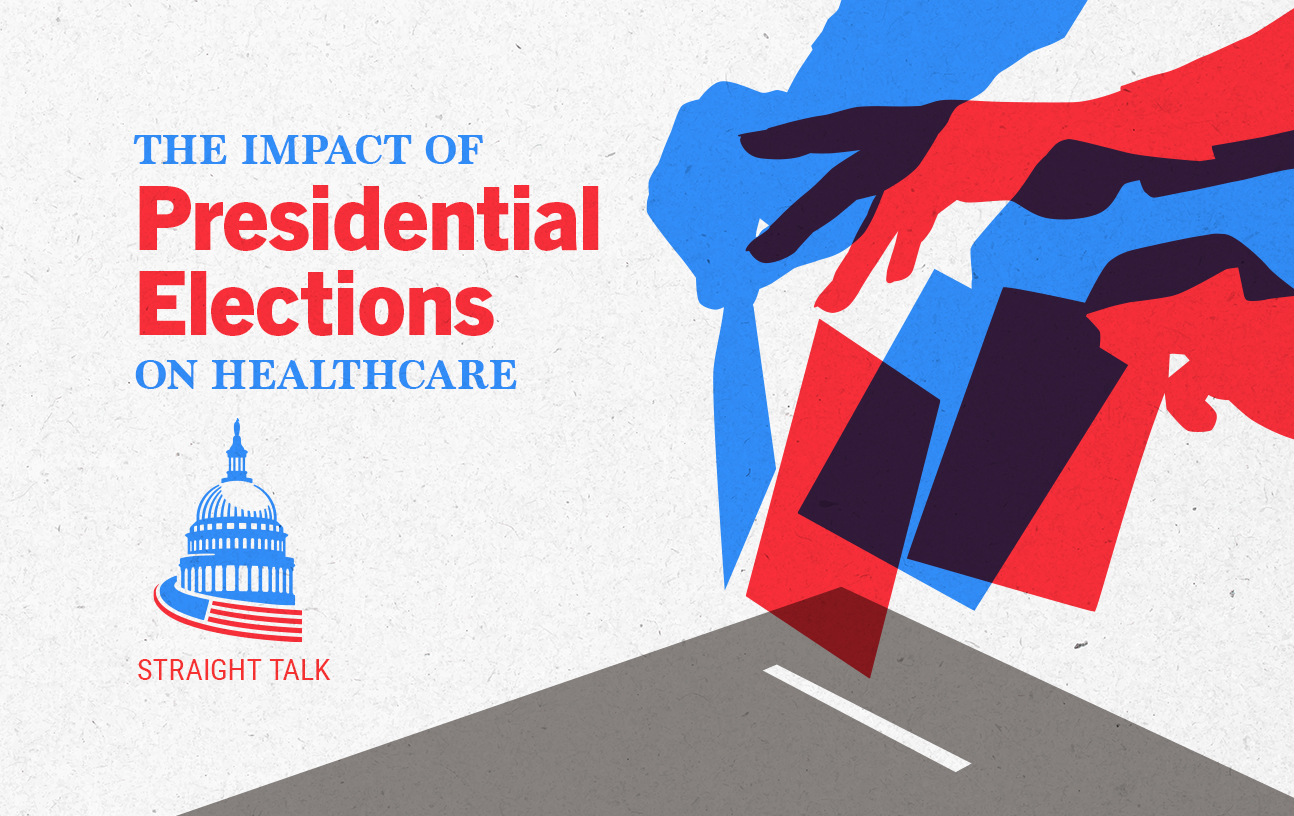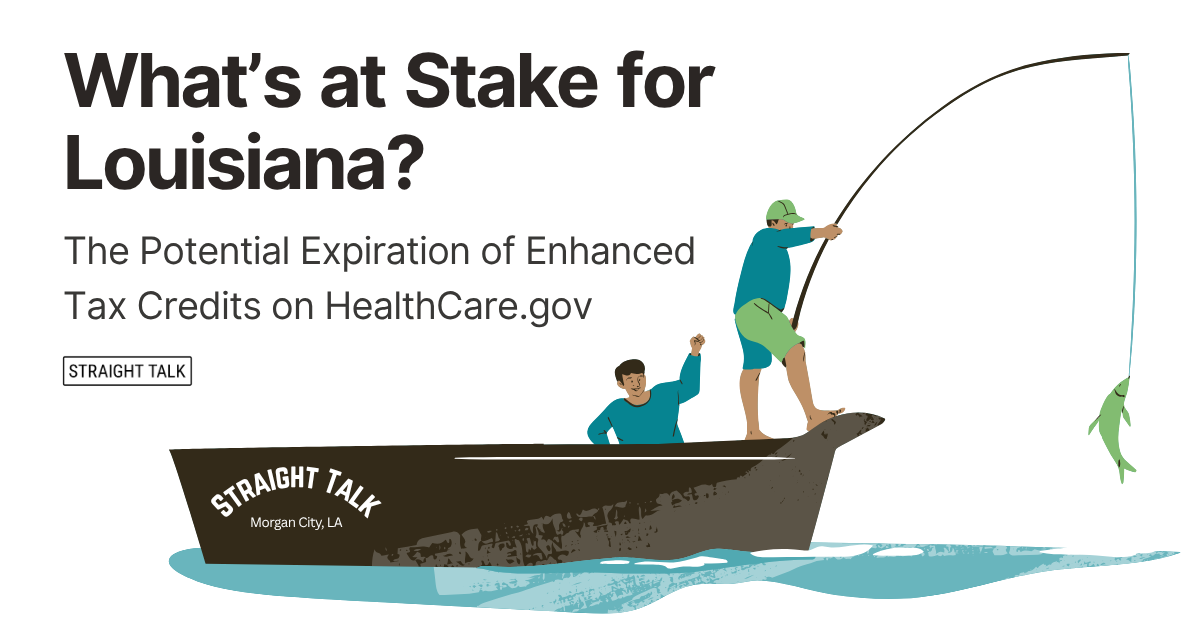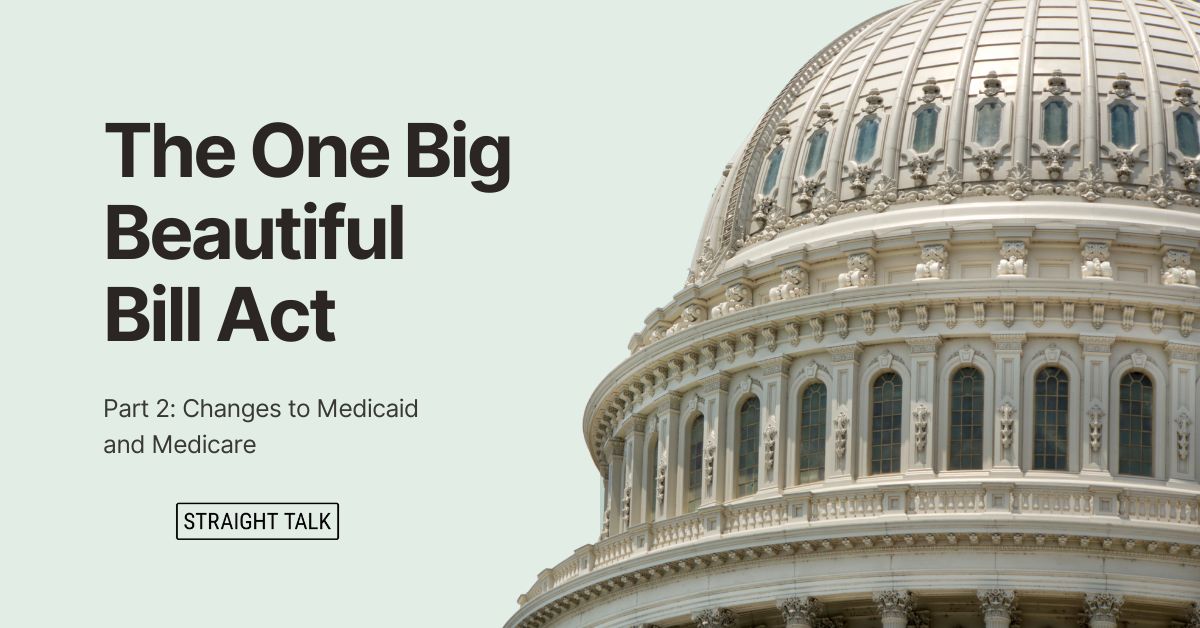Whew! I can’t tell you how happy I am when election season ends. I’m always hopeful for the new candidates, but also a bit saddened by the vitriol that seems to pop up prior to and during such elections, every time. That’s another reason to celebrate the end, I think.
I’m already getting emails….
“Mike, what does a new president and administration mean for Louisiana and health insurance?”
Frankly, it’s a bit too early to comment specifically on what a new president is going to be doing six months from now. But what we really CAN do is talk about what’s going to happen next administratively for the president and how that could affect our futures here in Louisiana.
You Won the Election! Now What?
So, let’s pretend YOU got elected president. Congratulations! By late January 2021, you’ll be officially in charge, Madame or Mr. President!
Almost immediately, your Chief of Staff and advisers will put a big folder on your desk (I always like to think of it as a big purple folder, for reasons I really don’t understand) with a list of about 30 jobs you need to fill right away, and recommendations from your transition team for people to fill those critical jobs. There will be jobs for staff at the White House (think media people, staff jobs, advisers, etc.) and the Secretary-level jobs at each federal agency (think Treasury, Labor, Health and Human Services, Environmental Protection, etc.) Since you are only one person, you cannot hope to make every decision and run every government agency yourself. You need lots and lots of help. In fact, once you get this machinery up and humming, you will be doing a LOT more hiring.
You’ll eventually hire more than 1,200 people who will hold senior leadership positions throughout the federal agencies. Many of these people will need Congressional approval before they can start their jobs, so you want to tap them for those roles as soon as possible. After that, you’ll have another 2,300 jobs you can assign. Overall, around 3% of the entire federal workforce, more than 3,600 jobs total, will be at your whim as president of the United States.
In reality, those 3,600 people run the federal agencies and make nearly all of the important decisions on their own, based on their understanding of what your long-term goals are. If you tried to micro-manage that many people, you’d go insane, so you need to choose wisely. These folks are also there to be your subject matter experts and advise you or give you input on big decisions, the type that can have national effects. It may be tempting to fill those good-paying, rich-benefit jobs with friends or big campaign donors, but that could come back to bite you later. You will want to choose wisely.
What Does a New Administration Mean for Louisiana Healthcare?
The best we can do right now is look over the list of potential appointments for the federal agencies that will control healthcare and health insurance. You can bet I’m studying these folks very, very closely right now.
Typically, the most important agency on healthcare is the Department of Health and Human Services (HHS), with its sub-agencies, the Centers for Medicare and Medicaid Services (CMS), Center for Consumer Information and Insurance Oversight (CCIIO), and the United States Preventive Services Task Force (USPSTF). All of these agencies are instrumental in determining the day-to-day application of healthcare policy and regulations on your health insurance.
Even the “definition” of health insurance is controlled by these agencies. This is of vital interest to regular citizens, businesses offering health insurance and carriers like Blue Cross and Blue Shield of Louisiana. These agencies also run programs and authorize the borrowing of more than $125 BILLION per year to support the ACA Medicaid expansions in multiple states and Advanced Tax Credits on healthcare.gov! Your HHS pick ALONE will be trusted with a budget in excess of $1.2 TRILLION dollars per year! That’s enough money to run Louisiana for 40 years or even a big state like California for 10.
“So Mike, what do the personnel choices tell you?”
Typically, quite a bit. More than I ever expected when I started this exercise decades ago.
For example, if you put people who have strong opinions on particular types of healthcare financing (think single payer or Medicare for All) into leadership positions, then we would expect those federal agencies to lean in to those concepts strongly and show less interest in the private health insurance marketplace. If your constituents are not fans of more government intervention in healthcare, this would make them unhappy. If your constituents think the government should be more involved, they’ll like your appointees’ policies and decisions. These positions have enormous power over healthcare and how it is financed and delivered. So, I will be watching these appointments with great interest.
Employers who provide their employees with health coverage are typically affected even more by regulations from the Department of Labor and the Department of the Treasury (think IRS). Leadership in these organizations typically adopt either a more pro-business or pro-employee stance. In the first case, employers might be happier, and their ability to pay for health benefits could be enhanced. In the second, employees might be happier, and employers’ ability to pay could be weakened. Again, it’s a fine balance of how much you, Madame or Mr. President, get involved and what ideologies those political appointees bring with them into the office.
Remember, a big part of my job is predicting membership in a state with 4.7 million potential health insurance customers. Understanding how the economic environment is changing for businesses here is crucial.
Sometimes, as we analyze potential job candidates, we take a geological view (the present is the key to the past), but other times, we take a more historical view (the past is the key to the future). It depends on who the candidates are. I think you are beginning to see that this is no slam-dunk. There are lots of variables.
Why Compromising with Congress is Key
Now, Madame/Mr. President, to really get things that are important to you done, you need to get Congress, both the House and the Senate, on board. We’ve talked about how in 2008 one party had complete control over the White House, Senate and House of Representatives, and from that control we got lots of new laws and regulations, like the Affordable Care Act. It seems likely at this point that you will be facing divided government in your upcoming administration, with one party controlling the House of Representatives and the opposition controlling the Senate. This makes everything you want to achieve harder to get.
You will have to work hard to gain compromises with the opposition to do anything big. This usually means you won’t get everything you want, and you’ll have to give in here and there. Can you live with that? If not, you might get nothing done.
You will also have to use your bureaucracy to get things done. Again, it comes back to hiring competent people who understand your will and mission as president and giving them clear directions and boundaries. This will go a long way toward being an effective leader (and making you look good.)
You getting tired yet? Well, Madame/Mr. President, I’ve said all along that being president is a ton of work, a lot more work than it looks on the surface. As time goes on and you get your hiring done, I’ll be able to more accurately predict how it could affect our state’s health insurance market and what we need to do here in Louisiana. And I’ll be watching your appointments and making sure our members know exactly what is changing so they can make good decisions. We’ve done that here continually for the 16 years I’ve been at Blue Cross, and I don’t expect that to change.
Straight Talk is, it’s not about systems, governments or machines. As with most things, it’s about people and personalities. And we’ll all be watching.
Godspeed!





Leave a Reply